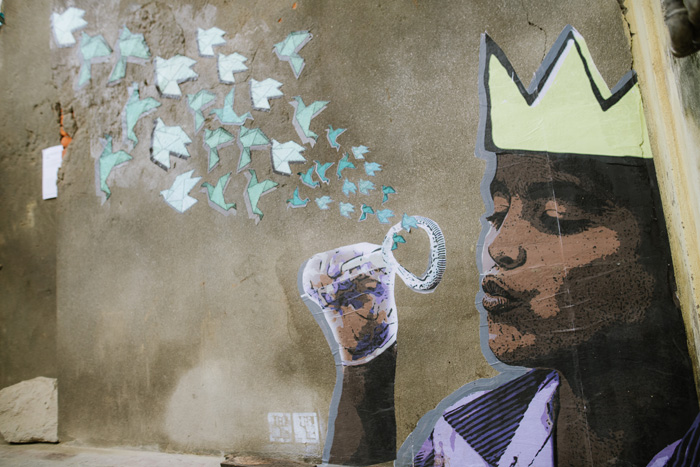Flash Nonfiction
by Remi Skytterstad

It is June 4th, 2019, exactly 30 years since the protests at Tiananmen Square, and my daughter has begun to understand the power in no.
Run to the bathroom so we can brush your teeth — no!
We can use your new Peppa Pig toothbrush — no!
Daddy must get to work, can you — no!
You’re just going to say no? Yes.
Which can frustrate a single dad who must catch his bus at 07:44.
There is power in no, enough power for me to miss my bus unless I send her to kindergarten unbrushed, or wrestle with her — like a fisherman trying to pose for the camera with a 15-kilo, wriggling, gurgling Atlantic Salmon.
This is when my forehead wrinkles: What no should I let her have? My feet lose their balance: What no should I teach her is unreasonable? Suddenly you’re skipping hopscotch. You do your best to manoeuvre between her lines — careful to not blur them out. Because, despite her three years of age, it’s my responsibility to respect her no, to show her the power in it, and let her have and feel this power.
When she chalks her lines on the asphalt, you are allowed this far, but not farther, she must believe — and know — that the lines she has chalked are enough. Because every time someone steps on our lines, the chalk becomes weaker and weaker, and when they have been stepped on enough times, there’s only white streams left. Pouring over the sides of the road — like after a rainfall.
Our no tells the world who we are: our values, and what we’re willing to do — or not do. There will come a time where a lack of no will have worse consequences than me not catching a bus. When that time comes, she must be aware of the power that can be wielded with it and have no doubts about its potency.
You can show strength in no, but also humility. She must say no to her hair being pulled, but she must also be able to say no to herself if an impulse of revenge simmers. It’s not just others who will challenge her lines, she herself must be careful not to step away her own.
I want her to say no in the face of hate, no in the face of prejudice, no in the face of injustice and no to anyone who attempts to take away the power from the word. Our no is important: a necessity in the face of threats against democracy, a liveable planet, or the right to love whomever you want — basic human rights.
It has been 30 years since students drew up their lines at Tiananmen Square, and over ten thousand were run over by tanks because of it. The lines they chalked up were washed from the asphalt in a dark colour of crimson. Their no was not respected, and the lines they drew on Tiananmen Square is washed away forever.
The right no must be a part of our children’s moral fibre, and they can’t be afraid to wield it. This is our responsibility. Therefore, when our children tell us no, let’s take our foot off the ground, and do our best to keep our balance as we move between the lines they have chalked — despite them being skewed from an unsteady child’s hand.
Appeared in Issue Fall '19
Nationality: Norwegian
First Language(s): Norwegian
Second Language(s):
English
Das Land Steiermark

Supported by:

